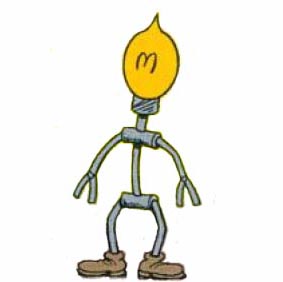Damasio and Spinoza Damasio gives with the book closer and new insight in the way the brain works. Where previous books referred explicitly to Spinoza, he speaks herein only lateral concerning him as 'my friend Spinoza'.
Damasio gives with the book closer and new insight in the way the brain works. Where previous books referred explicitly to Spinoza, he speaks herein only lateral concerning him as 'my friend Spinoza'.
In the 'Treatise concerning the improvement of the mind', written on young age, Spinoza writes about his intention to go and search for 'true knowledge'. To the core of what is important knowledge. To knowledge what he and everyone carry in himself and of which we approximately know what it implies, but not exact. It is his aim to increase this knowledge together with others.
The location in the brain for this inner knowledge, the spot from which comes permanently attempts to reach for the best inner standard (Treatise concerning the improvement of the mind 69/70, Dutch translation Verbeek, pg 62), is most probable the same as Damasio's spot where the homeostatic processes take place. Therefore near the old brain-tame. In Spinoza's time people spoke of the 'intuitive mind' and 'intuitive knowledge'. One could not see these by direct observation, but by using logic Spinoza gives already a picture and a close outline. Damasio fills in the picture with concrete observations. He enriches in therewith the SCIENTIFIC KNOWLEDGE.
Damasio and free will
In Damasio there is room for 'free will'. In an interview with Hendrik Spierink (NRC on 16/17 October 2010) Damasio sets out how he hands Victor Lammes 'Free will does not exist'. Damasio himself has changed his mind about the subject compared to 2003, when his books 'Looking for Spinoza' and "I feel therefore I am' appeared. In his new book, thinking has been given a clearer role.
Damasio: 'Victor Lamme called consciousness scornfully a 'chatter box'. Consciousness for him is it just an old man, who watches from a bench. This not Damasio point of view. In his view consciousness functions as conductor. Many experiments that are supposed to prove the enormous importance of the unconscious he speaks against by a simple: 'Do you really think that these experiments were successful with people who were in a coma (N.B. Damasio did much research with patients in coma, M.B.)'.
Spierink: ‘Just six years ago you said that consciousness plays only a minor role in human decisions. Biology some 90 percent. Now describe consciousness as a true leader, a conductor. What has changed?'
Damasio: 'Did I say really 90% at that time? Way too much. I probably drank wine. it is also absurd te give this a numerical expression. Anyway, I still insist that we be guided in many cases by rapid non-conscious processes. Otherwise life would be a mess! What is new in my work, is the insight that consciousness has a very important role by what I call 'slow thinking'. The modus of deliberation of the brain. This is precisely the foundation for the subsequent rapid, often unconscious, reactions. The thing is, that in our brains constantly a lot of ideas are connected by dispositions, unconscious linking of ideas. That is the essence of thinking: linking ideas. There is almost a constantly a huge unconscious process of connecting ideas going on.  Thanks to genetic dispositions that are often set with basic emotions and motivations as sex and hunger. These connections are made quickly. Most small animals never make a reaction, they have no time, they have no knowledge and they do not have the mental space to reflect. What happens in your mind without conscious planning you can compare what happens in a dream. Then the dispositions entirely go their own way. But in humans there is a second system due to consciousness. And that is much slower. In the consultation mode you remove yourself from the mostly automatic 'online mode' reactions to the here and now. In the off-line thinking in your head you create a large room with many performances in which you will practice and play opportunities. Such as planning one day and decide what you going to do with your money. You have to detach yourself from your environment. You go white, you are expressionless. It all has to do with an important evolutionary function: delaying a response.
Thanks to genetic dispositions that are often set with basic emotions and motivations as sex and hunger. These connections are made quickly. Most small animals never make a reaction, they have no time, they have no knowledge and they do not have the mental space to reflect. What happens in your mind without conscious planning you can compare what happens in a dream. Then the dispositions entirely go their own way. But in humans there is a second system due to consciousness. And that is much slower. In the consultation mode you remove yourself from the mostly automatic 'online mode' reactions to the here and now. In the off-line thinking in your head you create a large room with many performances in which you will practice and play opportunities. Such as planning one day and decide what you going to do with your money. You have to detach yourself from your environment. You go white, you are expressionless. It all has to do with an important evolutionary function: delaying a response.
Spinoza
Spinoza discusses the workings of the Will in Ethics part II, propositions 48 and 49. 48: ...Under ' Will ' I mean the ability to confirm or to deny ', not ' However 'the Desire' ....; 49, Encore: ' Will and Intellect are one and the same '. (N.B. This corresponds with texts by Dirck Volckertszoon Coornhert)

